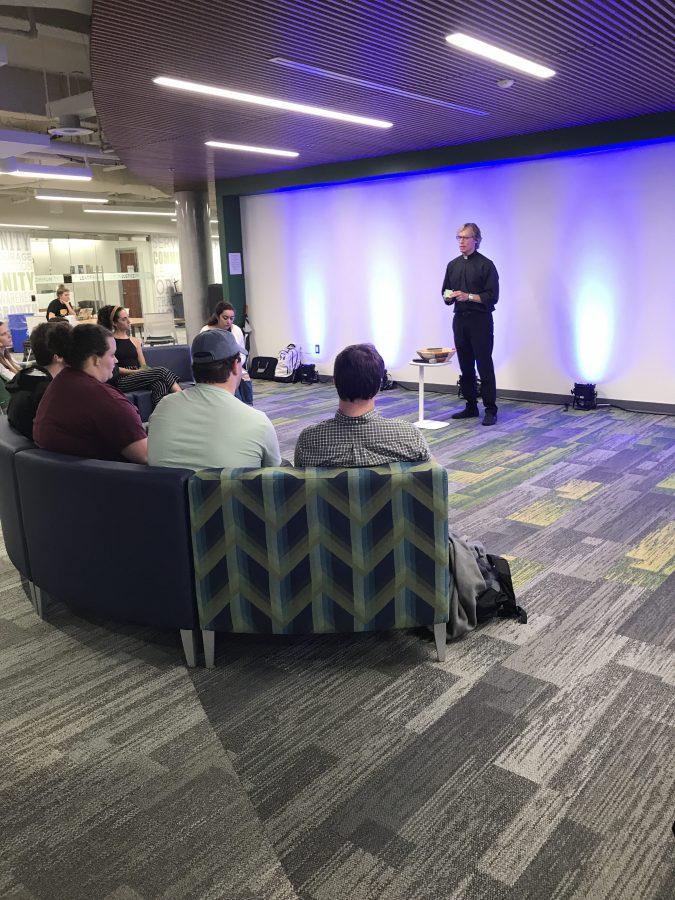To conclude Loyola’s day of prayer for survivors of sexual abuse and the future of the Catholic church, organizers from Campus Ministry, Center for Community Service and Justice (CCSJ) and the Women’s Center, organized a university vigil to acknowledge these traumas and raise hope for a brighter future for the church.
As repeated multiple times by the congregation, a mix of faculty, students, supporters, and survivors, “We see you, we hear you, we believe you.”
Megan Linz Dickinson, head organizer of the event and assistant director for Campus Ministry, recalled the process of formulating ideas for such a vigil which revolved around the need to acknowledge the sexual abuse. The key objectives of the event included asking the questions, “What happened? And how do people feel about it?” Flor Paniagua-Peart ‘21 played a key role in planning the vigil. She encouraged the idea of a “safe space for people to bring forward their experiences.”
Each detail of the vigil was intentional, from the timing of the silences observed to when the mantra, “We see you, we hear you, we believe you” was spoken. Although the gathering was very simple and peaceful, an array of emotions was felt within the room and among the rest of the university.
The room, filled with peaceful, soft music as participants gathered in a circle around the allotted space for those who wanted to speak, invited anyone who wished to commemorate the pain of survivors in prayer or in silence to join. Upon entering, each person was handed a pen and a piece of paper which read, “I feel…”. The group was encouraged to write down whatever emotions they were experiencing, from hope to hopelessness, peace to anxiety.
Participants were invited to vocalize their feelings by placing their slips of paper into a bowl or simply keeping their thoughts to themselves. Many people expressed feelings of “anger,” “inspiration,” “motivation,” “numbness” and “anxiety.”
CCSJ Assistant Director for Service Learning Kate Figiel-Miller spoke about her initial feelings of “disconnect” in the room—something that many of the people in attendance had in common. These horrors happening unbeknownst to Catholics worldwide left many at Loyola and in the rest of the world with sudden feelings of distrust toward an institution they had relied on for so long.
However, this day of prayer and its accompanying vigil seemed to be rather helpful for those with feelings similar to those expressed by Figiel-Miller. The free expression and sharing of emotions helped those struggling with their own personal divides from the church to better understand why they were feeling that way.
“There was definitely a lot [of emotion] in the room,” Figiel-Miller said.
Upon the conclusion of the vigil, Paniagua-Peart discussed her feelings on the overall impact of the event.
“It’s nice to put those feelings out there, and it’s nice to have some space where you can do that. In different aspects of politics and the church, that hasn’t been shown as much–the voices of people being heard. The fact that we could do that at Loyola, allow people’s voices to be heard, has a huge impact on our community, hopefully in a positive way.”




















































































































Anonymous • Oct 18, 2018 at 4:08 am
1